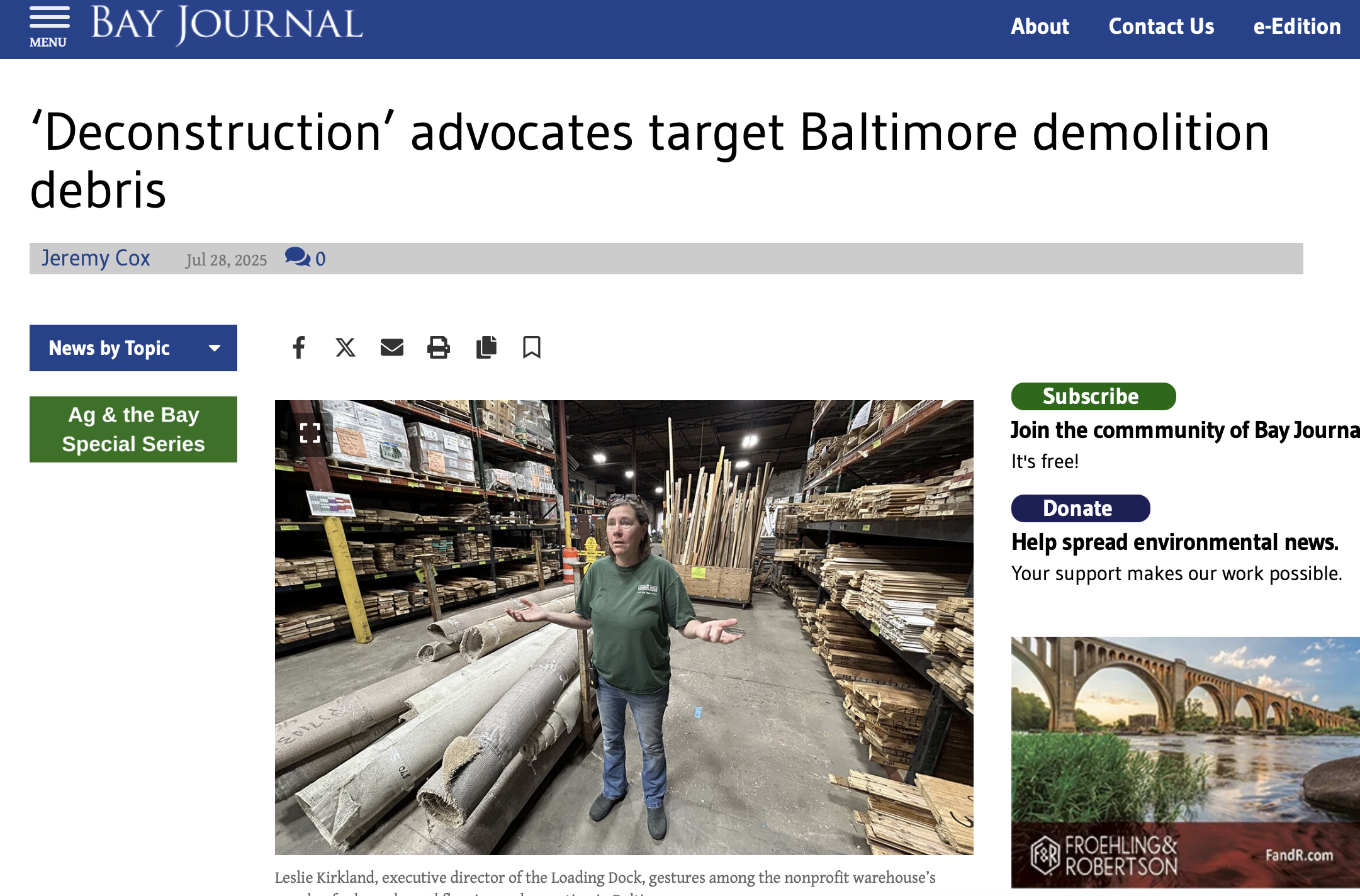A recent Bay Journal feature (read it here) spotlighted the growing call for sustainable alternatives to demolition in Baltimore—and Preservation Maryland (and programs Smart Growth Maryland and The Campaign for Historic Trades’) leadership at the center of that movement.
The article details a troubling trend: traditional demolition in Baltimore generates thousands of tons of waste, much of it reusable wood and brick that ends up in landfills. But it also uplifts an emerging solution—deconstruction, the disassembly of buildings to preserve valuable materials and create local jobs.
Preservation Maryland’s Smart Growth Maryland program, which recently hosted the Maryland Deconstruction Summit to bring national and local leaders together to push for practical change. Held in May 2025, the Deconstruction Summit convened dozens of experts, community leaders, environmental advocates, and reuse professionals to explore scalable alternatives to traditional demolition.
The Bay Journal covered several key takeaways:
- Deconstruction offers a climate-smart, job-creating alternative to demolition, diverting tons of waste and reducing emissions.
- The Summit served as a catalyst for conversations around state and local legislation, community benefits, and public health.
- Smart Growth Maryland’s Model Deconstruction Ordinance was introduced as a tool that local governments can use to adopt policy now—not years from now.
As the article notes, deconstruction is not only a more sustainable option—it’s a justice-centered one. Traditional demolition can leave behind toxic dust and debris that harm residents in already-disinvested neighborhoods. Deconstruction reduces those risks while offering economic opportunity in the very communities where buildings are coming down.
What Comes Next?
Following the Summit, Smart Growth Maryland and its partners continue to:
- Promote the adoption of the Model Ordinance by jurisdictions across Maryland;
- Advocate for state-level policy change to incentivize reuse and deconstruction;
- Elevate public awareness of the environmental and economic value in building reuse;
- Support workforce development, especially through The Campaign for Historic Trades.

